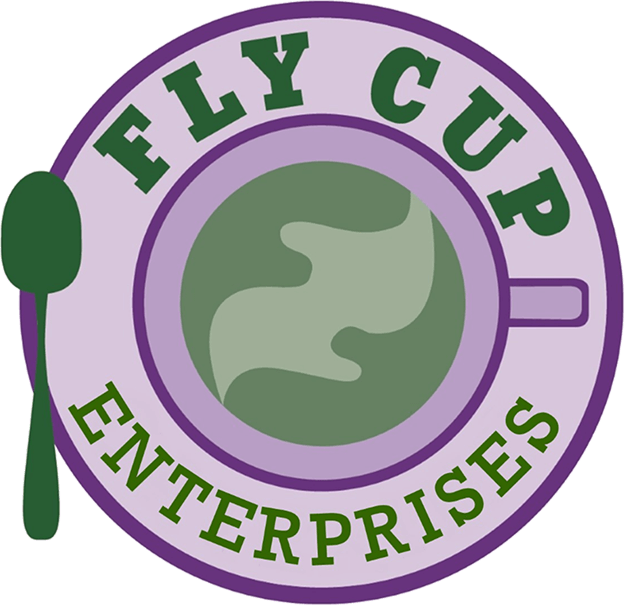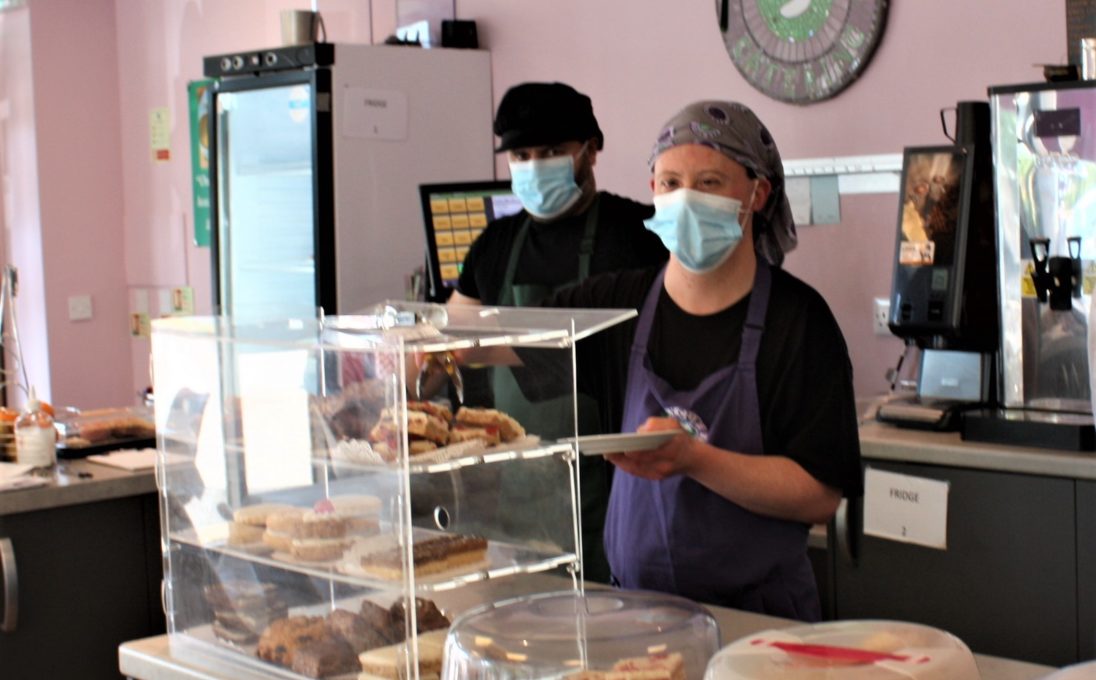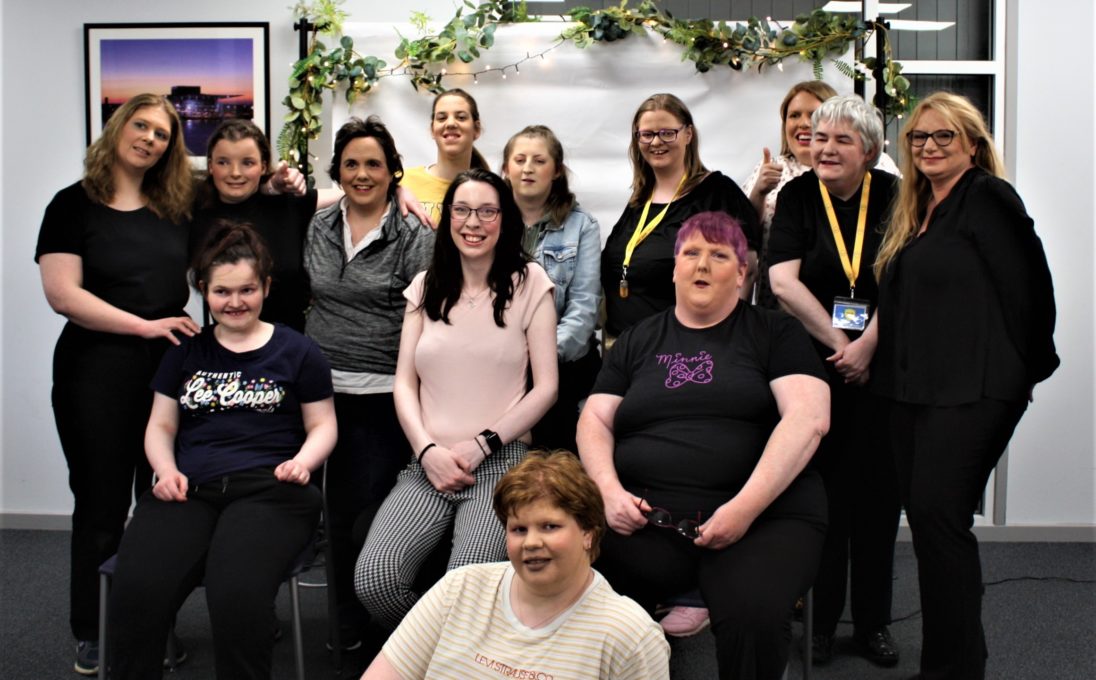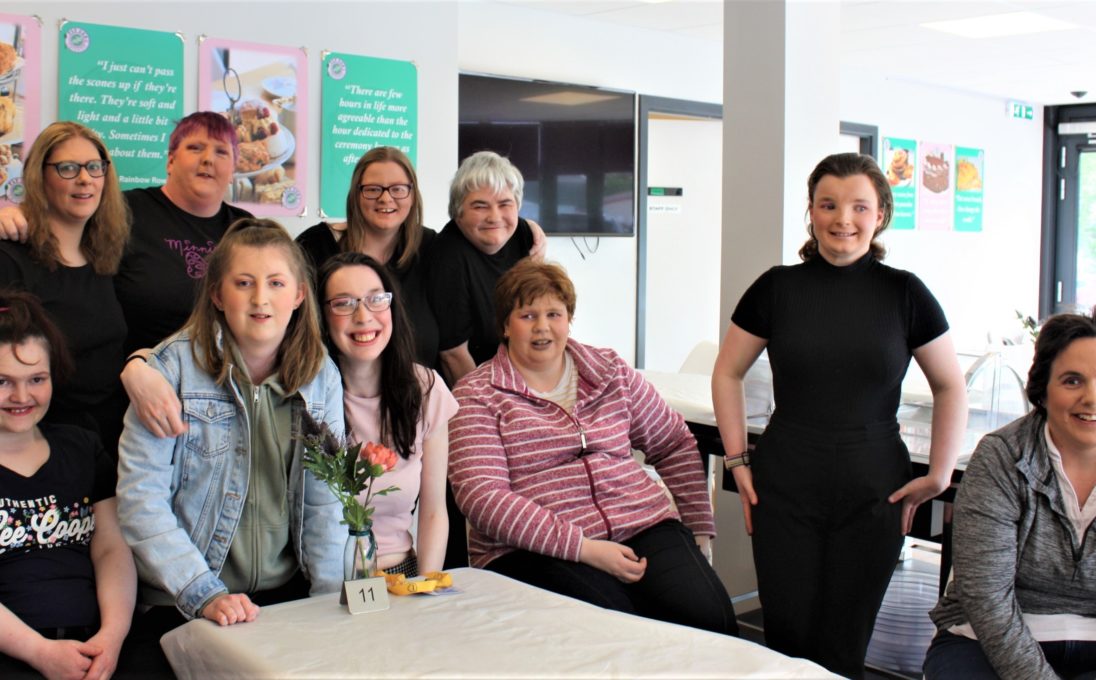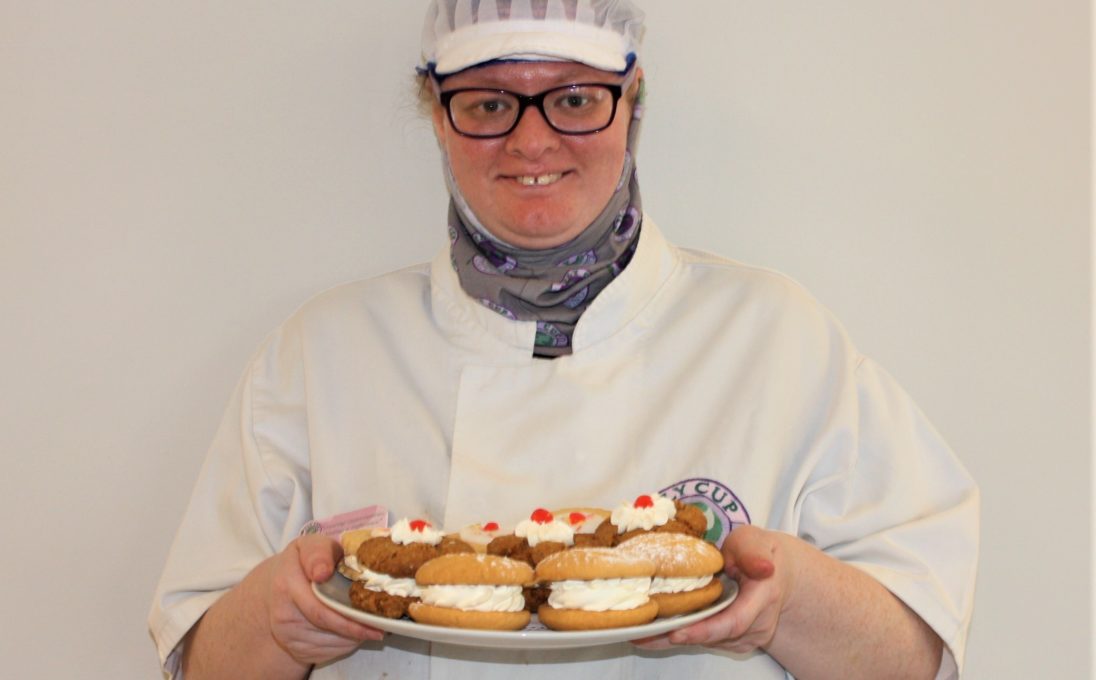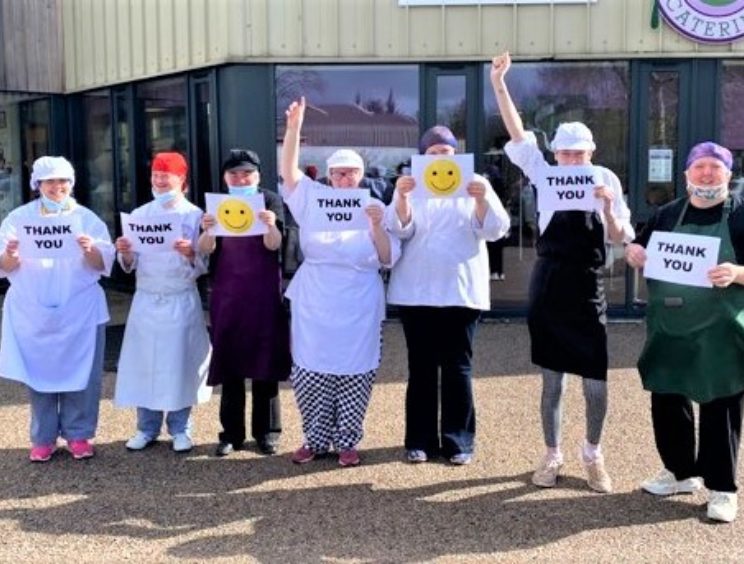Qualifications
Scottish Vocational Qualifications (SVQ)
To achieve an SVQ, candidates must prove that they have the ability to carry out their job to the required standard. SVQs are based on National Occupational Standards that describe the ‘competencies’ expected in any given job role. Typically, candidates will work towards an SVQ that reflects their role in a paid or voluntary position. For example someone working in an admin office role may take an SVQ in Business and Administration.
There are five levels of SVQ ranging from Level 1, which focuses on basic work activities, to Level 5 for senior management. At Fly Cup, we train up to Level 2 in Hospitality and Catering.
Level 1
Competence that involves the application of knowledge in the performance of a range of varied work activities, most of which are routine and predictable.
Level 2
Competence that involves the application of knowledge in a significant range of varied work activities, performed in a variety of contexts. Collaboration with others, perhaps through membership of a work group or team, is often a requirement.
ASDAN
ASDAN is an educational charity, providing flexible and engaging programmes and qualifications that help people of all ages and ability develop skills for learning, work and life.
ASDAN offers a variety of exciting and innovative curriculum programmes and materials that tutors can use in work based and other education or training environments. ASDAN programmes and qualifications motivates learners through short-term targets and regular recognition of achievement. ASDAN develops a wide range of core skills in young people, including teamwork, problem solving, communication, managing your own learning and performance, and conducting research. The programmes also allow for character traits to develop such as confidence, self-esteem, resilience and ambition.
ASDAN Modules
We use the ‘Towards Independence’ module at Fly Cup. It provides a framework of activities where personal, social and independence skills can be developed and accredited for those with moderate (MLD), severe (SLD) and profound and multiple learning difficulties (PMLD).
ASDAN Aims
To provide a flexible programme that can meet the needs of a wide ability range. To offer formal recognition for small steps in achievement towards a larger goal. To offer a framework for progression.
